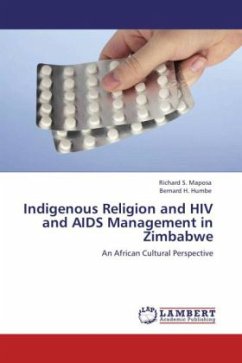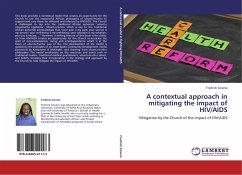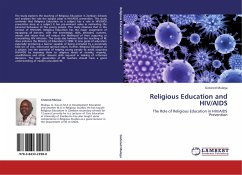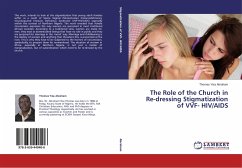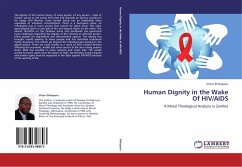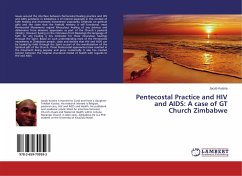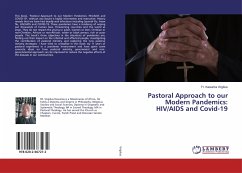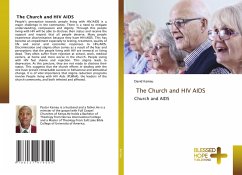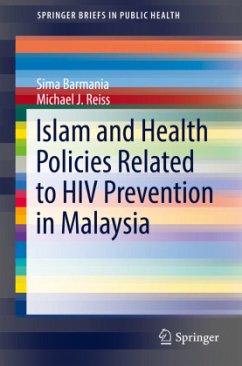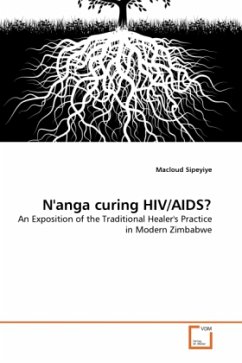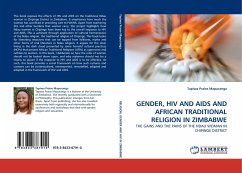
GENDER, HIV AND AIDS AND AFRICAN TRADITIONAL RELIGION IN ZIMBABWE
THE GAINS AND THE PAINS OF THE NDAU WOMAN IN CHIPINGE DISTRICT
Versandkostenfrei!
Versandfertig in 6-10 Tagen
45,99 €
inkl. MwSt.

PAYBACK Punkte
23 °P sammeln!
This book exposes the effects of HIV and AIDS on the traditional Ndau woman in Chipinge District in Zimbabwe. It emphasises how much the woman has sacrificed in providing care to PLWHA. Apart from examining this and other burdens that women carry, this project highlights how Ndau women in Chipinge have been key to the overall response to HIV and AIDS. This is achieved through application of cultural hermeneutics of the Ndau religion, the traditional religion of Chipinge. This book looks for liberating resources that can be tapped from folklores, myths and other forms of oral literature in Ndau...
This book exposes the effects of HIV and AIDS on the traditional Ndau woman in Chipinge District in Zimbabwe. It emphasises how much the woman has sacrificed in providing care to PLWHA. Apart from examining this and other burdens that women carry, this project highlights how Ndau women in Chipinge have been key to the overall response to HIV and AIDS. This is achieved through application of cultural hermeneutics of the Ndau religion, the traditional religion of Chipinge. This book looks for liberating resources that can be tapped from folklores, myths and other forms of oral literature in Ndau religion. It argues for the silver lining in the dark cloud presented by some harmful cultural practices (HCPs) that present African Traditional Religions (ATRs) as oppressive and ruthless to women. In this book, I deliberate on how the roles of women should not be looked down upon, and why maleness should not be a means to power if the response to HIV and AIDS is to be effective. As such, this book provides a social framework on how such cultures and customs can be contextualised, reinterpreted, remodelled, adapted and adopted in the framework of HIV and AIDS.



